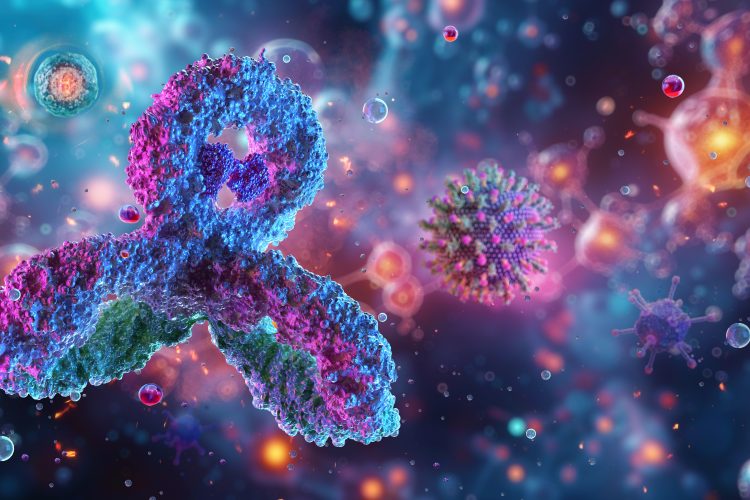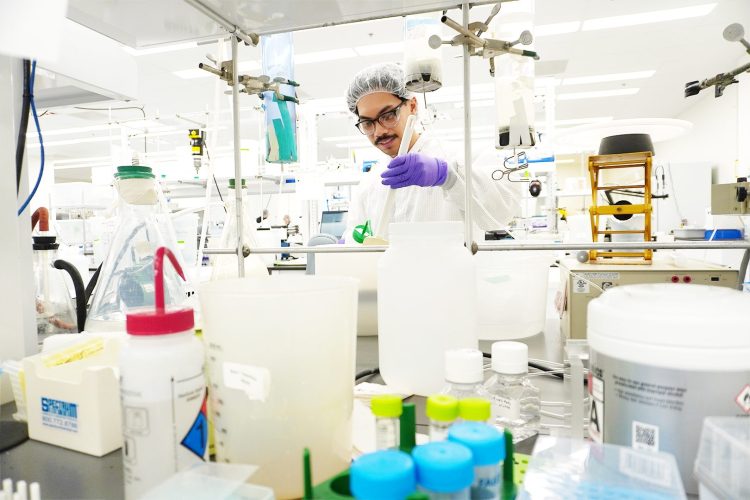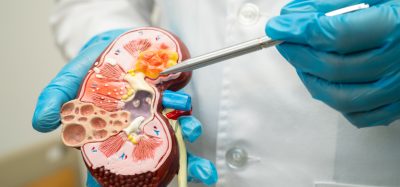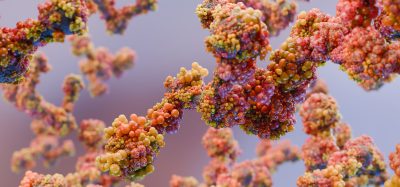Antibodies come full circle: biopharma back at the bench
Posted: 31 July 2025 | Dr Michael Fiebig (Chief Scientific Officer at Absolute Antibody) | No comments yet
Recombinant antibody technology is redefining research standards – bringing biopharma-grade precision, consistency, and customisation to the lab. Discover how advances like Fc engineering and chimerisation are accelerating progress from basic discovery to clinical insight.


While antibodies have long been a cornerstone of biomedical research, innovation in recombinant DNA technology over the past few decades has redefined possibilities in drug discovery and development. The sequencing, engineering and expression strategies used to create some of today’s most promising therapeutic modalities are now transforming capabilities in basic research and setting a new standard for reliable, high-quality antibody tools. From humanisation to fine-tuned engineering of bispecific and multispecific antibodies, sophisticated advances initially refined in the biopharmaceutical industry are now more accessible to academic researchers and startups alike.
The greatest strides forward in biomedical innovation are built on the foundation of basic research. Thus bringing high-quality, advanced antibody technologies from biopharma back to the bench can fuel a feed-forward loop, strengthening that foundation of research and driving further scientific breakthroughs. In this article, I’ll outline how recombinant antibody technology has revolutionised numerous research areas and how specific applications are making an impact from biopharma to basic research.
The recombinant revolution
Recombinant antibody technology has addressed many of the challenges posed by traditional and hybridoma-based methods, transforming the antibodies used in therapeutic and diagnostic applications in two fundamental ways. Firstly, recombinant antibody technology has increased the quality and consistency of antibody products. Unlike polyclonal antibodies produced through animal immunisation – which can vary from batch to batch and raise ethical concerns – or hybridoma-derived monoclonals, which may suffer from genetic instability over time, recombinant approaches offer a more reliable, ethical and reproducible alternative. Importantly, recombinant engineering capabilities have also simplified, enhancing the process of optimising antibody performance. These technologies enable highly controlled engineering of antibody structure and function through genetic manipulation, enabling users to fine-tune antibodies for specific therapeutic applications.
Biomarkers are redefining how precision therapies are discovered, validated and delivered.
This exclusive expert-led report reveals how leading teams are using biomarker science to drive faster insights, cleaner data and more targeted treatments – from discovery to diagnostics.
Inside the report:
- How leading organisations are reshaping strategy with biomarker-led approaches
- Better tools for real-time decision-making – turning complex data into faster insights
- Global standardisation and assay sensitivity – what it takes to scale across networks
Discover how biomarker science is addressing the biggest hurdles in drug discovery, translational research and precision medicine – access your free copy today
Beyond therapeutic development, recombinant antibodies are transforming basic research by providing scientists with access to high-quality, customisable reagents. Their precision and consistency support more accurate and reproducible experiments, helping bridge the gap between early-stage discoveries and clinical applications. The scalability and cost-effectiveness of recombinant production have also democratised access to these improved antibodies, allowing academic labs and small biotech startups to leverage the same advanced tools once limited to large pharmaceutical companies.


Recombinant antibody technology is a method used to create antibodies by cloning antibody genes and expressing them in host cells, allowing for precise, scalable and animal-free production. Courtesy of Vector Laboratories.
Basic tools made better
Making recombinant antibody technology accessible to basic researchers not only signals improved quality and reproducibility, it also affords access to many of the same principles originally pioneered for antibody therapeutic development to improve fundamental research techniques.
One of the most transformative advances in recombinant antibody engineering is chimerisation, which combines the antigen-binding variable region of an antibody from one species with the constant region of another. This flexibility allows users to adapt monoclonal antibodies to any platform or binding module, creating tools tailored to their specific needs. In multiplex immunofluorescent imaging studies, for example, chimeric antibodies can be created for different host species or isotypes, minimising cross-reactivity and enabling clean co-labelling of multiple targets.
Beyond chimerisation, recombinant antibody engineering also enables precise modification of Fc effector functions, which can further reduce background signal in both flow cytometry and immunofluorescence microscopy.
Beyond chimerisation, recombinant antibody engineering also enables precise modification of Fc effector functions, which can further reduce background signal in both flow cytometry and immunofluorescence microscopy. Altering or silencing Fc receptor binding with the same engineering strategies used to reduce Fc effector function in therapeutic antibodies can yield antibodies that are less likely to engage with Fc receptors and produce unwanted background staining. This level of control enhances the specificity of antibody–antigen interactions while minimising off-target effects that can obscure the signals of interest. Together, these innovations finetuned in biopharma are elevating the reliability and interpretability of antibody-based detection methods, making them more robust tools for both basic and translational science.
Empowering in vivo research
In addition to improving the performance of vital tools for in vitro studies, advanced recombinant engineering strategies can help researchers overcome persistent obstacles in in vivo research. When leveraging antibodies in non-human animal studies, anti-species immune responses can compromise their efficacy and result in unclear data. These unwanted immune responses also impact the welfare of model animals over time, limiting their viability in longer experimental timelines. Recombinant engineering techniques have simplified the creation of species-matched chimeric antibodies that minimise immunogenicity and yield cleaner experimental results.
Fc-silencing mutations, meanwhile, can eliminate depletion while still preserving FcRn binding, resulting in an extended serum half-life not possible with antibody fragments.
As in in vitro applications, Fc engineering facilitates fine-tuning of effector functions which can otherwise interfere with in vivo experimental outcomes. For example, antibodies that are supposed to deplete a target can be engineered into a strongly depleting isotype, while antibodies that are intended to cross-link targets via Fc receptors, but not deplete, can be engineered into slightly less potent isotypes. Fc-silencing mutations, meanwhile, can eliminate depletion while still preserving FcRn binding, resulting in an extended serum half-life not possible with antibody fragments.
Together, these recombinant antibody engineering techniques empower more reliable and clinically relevant research in animal models, increasing the translational value of basic science. Researchers can more closely mimic intended therapeutic mechanisms without triggering unintended immune responses in model animals. These advances reduce confounding variables, improve the physiological relevance of in vivo research, and generate more valuable data insights.
Driving innovation from basic research to the clinic
As recombinant antibody engineering techniques continue to redefine possibilities in therapeutic applications, their impact is also reshaping what is possible at the bench. By equipping researchers with tools that are more customisable, reproducible and clinically relevant, these innovations are narrowing the gap between discovery and application.
The same engineering strategies that have powered breakthroughs in therapeutic development are now accelerating progress in basic science, helping researchers gain a deeper understanding of disease etiology, basic biological processes, and novel therapeutic targets and biomarkers. As sophisticated engineering techniques become more accessible to researchers at every level, high-quality and customisable recombinant antibody tools are poised to advance the quality of data and accelerate the pace of discovery.


Michael Fiebig, PhD, is Chief Scientific Officer, Absolute Antibody, a Vector Laboratories company. Michael studied biochemistry before obtaining his doctoral degree from the University of Oxford. He joined Absolute Antibody in 2014 to develop the recombinant antibody catalogue and many underlying technologies, before transitioning into the role of Chief Scientific Officer in 2021. In 2024, Vector Laboratories merged with Absolute Biotech, expanding its manufacturing and distribution footprint from multiple manufacturing sites in the US to the UK and Europe.
Contact: [email protected]
Related topics
Antibodies, Antibody Discovery, Assays, Drug Discovery, Drug Discovery Processes, In Vivo
Related organisations
Absolute Antibody








